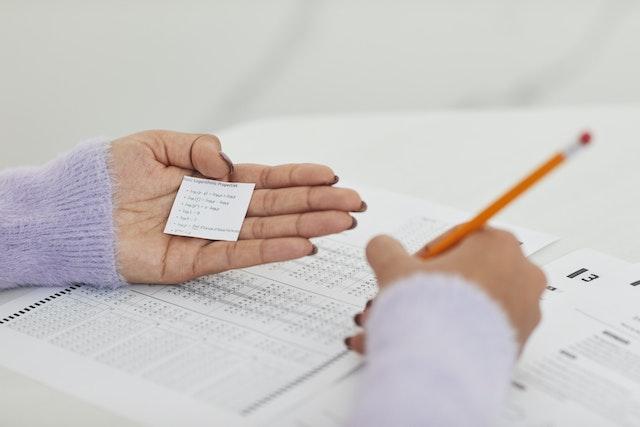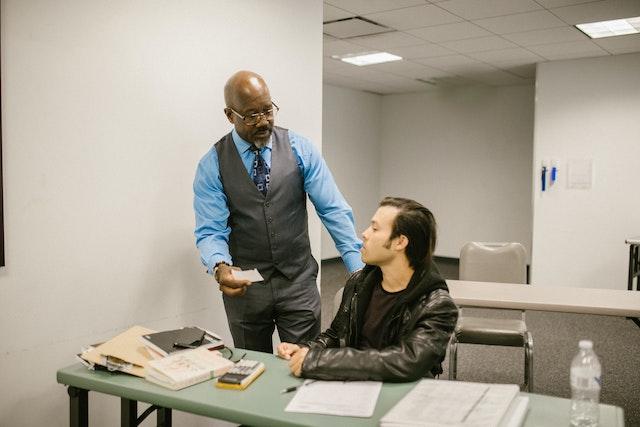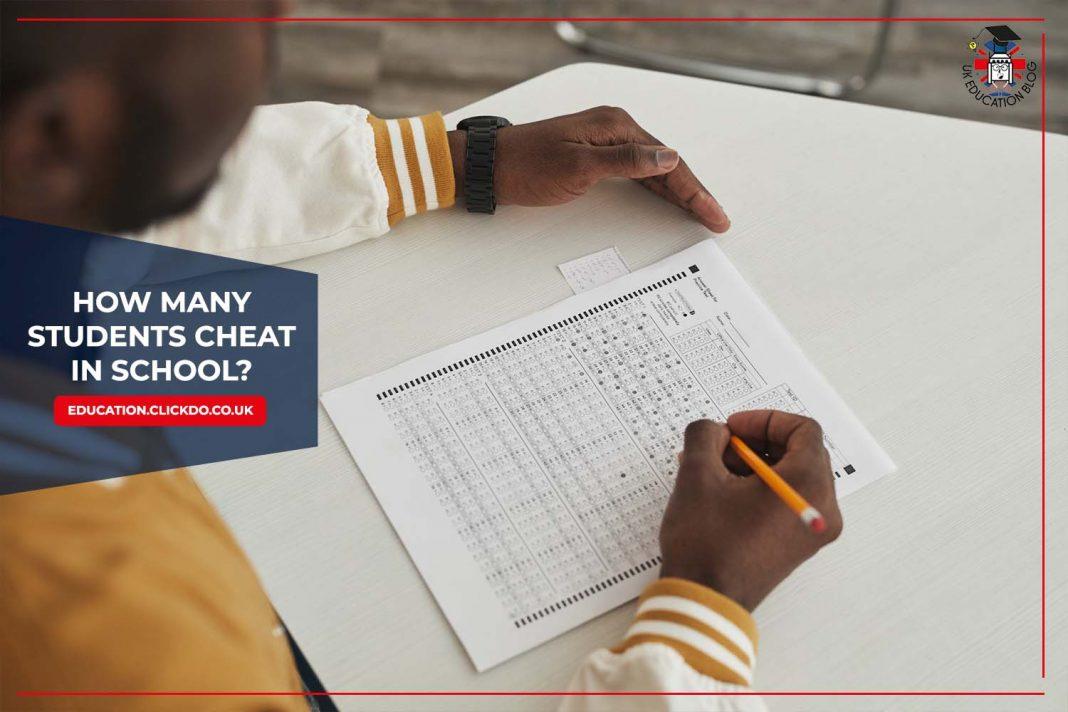The temptation to go through school without cheating once is certainly a given. It’s been this way forever, and it’s not going anywhere.
While most cases of cheating are relatively harmless, achieving higher-than-deserved grades on important tests and exams is in bad taste. Performance is tracked throughout one’s entire stay at school.
And if you consistently fake good performance and graduate with a higher score, it often means that actual high achievers must compete with cheaters. This is a serious threat to the integrity of education as a whole. Which is why proctoring exists to combat cheating.
But exactly how common is cheating in school and does proctoring help battle this problem, and what’s the reason why students cheat?
Statistical Data on Cheating

Some of the latest statistical data shows that cheating is very common in American schools, and this behaviour often carries into universities and colleges.
Here are several high-level surveys of recent years:
- A frequently cited study by the Josephson Institute of Ethics from their ‘Report Card on the Ethics of American Youth’ suggested that about 59% of high school students admitted to cheating on a test during the last year, with 34% doing it more than twice.
- According to the International Center for Academic Integrity, more than 68% of undergraduate students and 43% of graduate students admit to cheating on tests or written assignments.
- A 2019 survey by the EduBirdie academic platform revealed that 32% of U.S. students admitted to cheating in online classes.
While there’s no saying how biased or accurate these surveys are, the cross-examination of these studies shows that at least a third of American schoolers cheat during classes and more cheat on exams. It’s worrying, because there’s no telling how many current specialists in various fields come from such backgrounds.
The Implications of Cheating

Erosion of Academic Integrity
Academic integrity forms the backbone of any educational institution. When students cheat, this foundational trust is eroded. With widespread cheating, the value of academic achievements, degrees, and qualifications becomes questionable. Stakeholders, including future employers and academic peers, may begin to doubt the credibility of an institution’s academic assessments.
Unpreparedness for Future Endeavors
Cheating doesn’t just affect grades; it affects learning. Students who habitually cheat deprive themselves of genuine understanding and skill acquisition. This lack of knowledge becomes evident when they face real-world challenges or advanced studies where foundational knowledge is assumed. Their unpreparedness can lead to further struggles, impacting their career and future studies.
Impact on Honest Students
For students who maintain their integrity, seeing their peers cheat and possibly achieve higher grades can be demoralizing. It introduces an uneven playing field, where honest efforts may seem unrewarded in comparison to dishonest shortcuts. This can lead to resentment, disillusionment, or even pressure for these students to cheat in future assessments.
Institutional Repercussions
Beyond individual students, the ripple effect of cheating extends to the very institutions they represent. Widespread cheating can tarnish a school’s or university’s reputation, making it less appealing to prospective students and faculty. Moreover, academic bodies or accreditors might question the institution’s efficacy, potentially leading to reviews, sanctions, or loss of accreditation.
The Proctoring Solution

Introduction to Proctoring
Proctoring has long been an effective measure to ensure the integrity of examinations. At its core, proctoring involves supervising or monitoring exam-takers to prevent dishonest practices. While traditionally this meant having a human supervisor physically present during the test, advances in technology have expanded and refined the scope of proctoring.
How Proctoring Works
In a conventional classroom setting, proctors keep a close watch on students, ensuring no unauthorized materials are used and that students aren’t copying from one another. In the digital realm, online proctoring tools are employed, which can include video surveillance to monitor the test-taker, screen recording to observe what’s displayed on the student’s device, and even software that detects and prevents navigation away from the exam screen.
Benefits of Proctoring
The benefits of employing proctoring, whether traditional or online, are manifold:
- Proctoring creates a structured exam-taking environment, minimizing potential distractions and unauthorized assistance.
- The mere knowledge of being monitored can deter many students from contemplating cheating.
- With every student undergoing the same level of scrutiny, a more equitable testing environment is established.
- Schools and universities can confidently assert the authenticity of their examination results, bolstering trust among stakeholders.
Through these measures, proctoring aims to uphold the sanctity of exams, ensuring that results genuinely reflect a student’s knowledge and abilities.
Impact of Proctoring on Cheating Rates

According to the Online Learning Consortium, the introduction and adoption of online proctoring tools have significantly curbed cheating in online learning environments.
Their study indicated that students in online courses with proctoring mechanisms in place were far less likely to engage in dishonest behaviour compared to courses without such measures. In fact, courses that used proctoring tools witnessed a marked decrease in reported cheating incidents by as much as 25%.
Several reasons account for this decline:
- Technological Deterrence. Advanced proctoring tools can effectively monitor and restrict students’ activities on their computers, making traditional cheating methods like browsing the internet or accessing unauthorized files almost impossible.
- Psychological Factor. The awareness of being monitored serves as a strong psychological deterrent against cheating.
- Immediate Feedback. Some proctoring tools provide immediate feedback on suspicious activities, allowing real-time interventions.
While no method can guarantee a complete elimination of dishonesty, the evidence suggests that proctoring has become a formidable tool for maintaining academic integrity, especially in online learning environments.
Conclusion
It’s not likely that new methods of proctoring will eradicate cheating. With each new measure, there is a countermeasure. Still, it seems like proctors of a new generation manage to curb the worst manifestations. With the rise of online classes, it’s not increasingly more difficult to cheat on tests.
Author Profile

- Shirley Owen is a blogger and writer who enjoys writing blogs on education, technology and general news. An avid reader, she follows all the latest news & developments to report on them through her articles.
Latest entries
 language learningJune 18, 2025From Beginner to Fluent: Your 6-Month English Learning Plan
language learningJune 18, 2025From Beginner to Fluent: Your 6-Month English Learning Plan early learningMay 16, 2025Boosting Young Brains: The Power of Puzzles in Child Development Explained
early learningMay 16, 2025Boosting Young Brains: The Power of Puzzles in Child Development Explained ExamsMay 1, 2025Mastering A-Level Economics: A Strategic Guide to Academic Excellence
ExamsMay 1, 2025Mastering A-Level Economics: A Strategic Guide to Academic Excellence student lifeApril 24, 202512 Best Study Spots in Liverpool Revealed
student lifeApril 24, 202512 Best Study Spots in Liverpool Revealed







